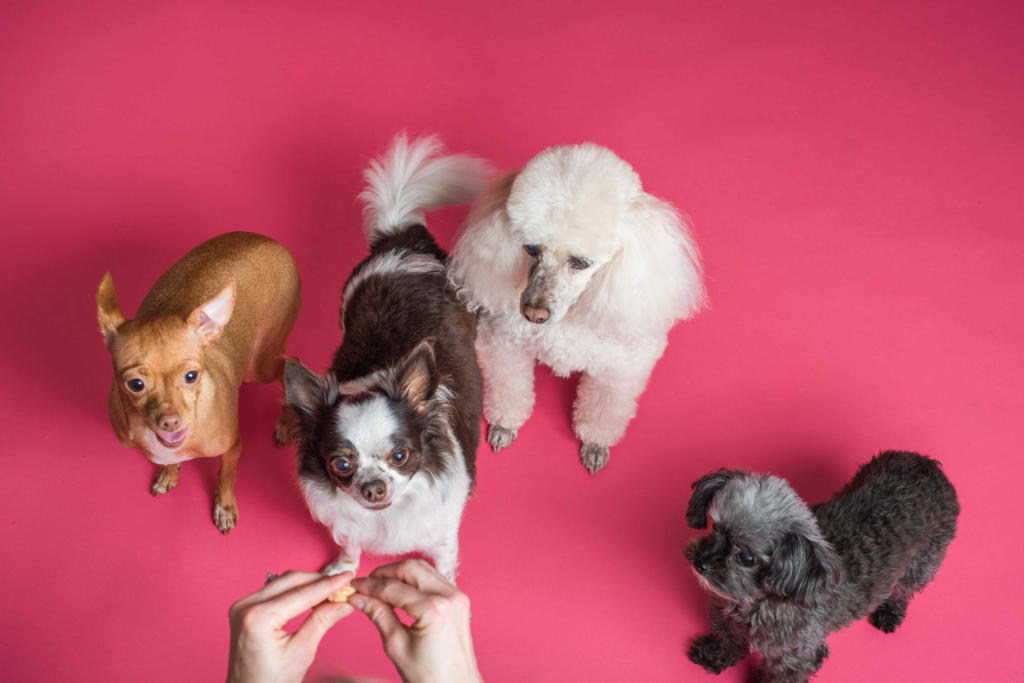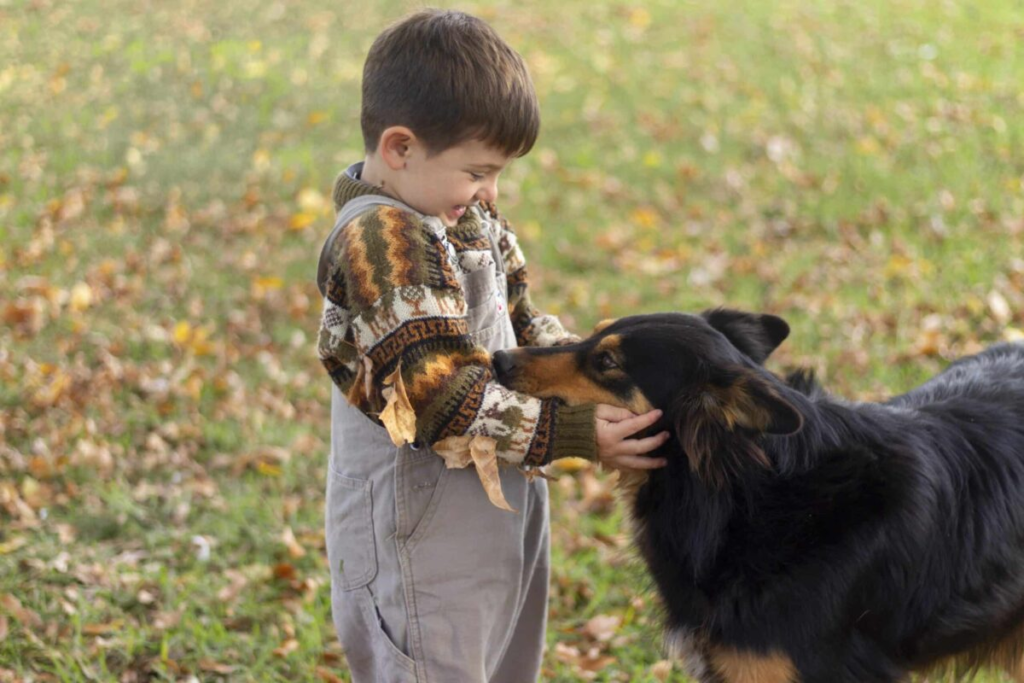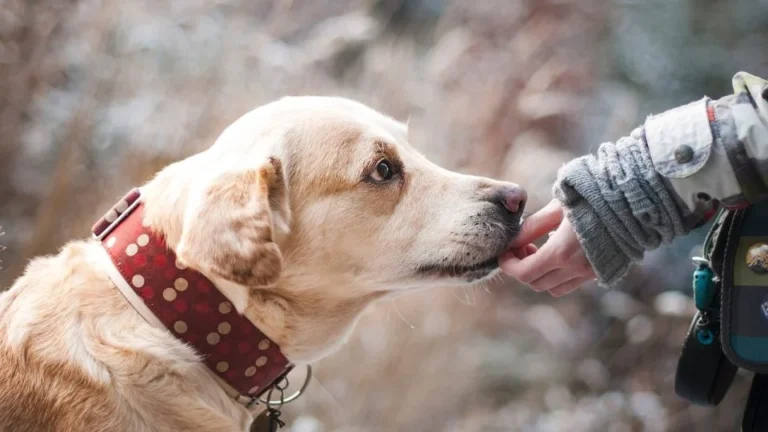Table of Contents
Can dogs be autistic? Many pet owners wonder if their dogs show signs of autism. Dogs sometimes act differently, like avoiding people, not liking loud noises, or doing the same things over and over again. This makes people ask if autism exists in dogs, just like in humans.
While dogs cannot be diagnosed with autism like humans, they can have behaviors that seem similar. Some dogs may not like to play with others, avoid eye contact, or feel scared in new places. These behaviors might be caused by genetics, past experiences, or other health problems. In this blog, we will explore whether autism exists in dogs, what signs to look for, and how to help a dog with special needs.
Can Dogs Be Autistic? What Science Says
Many dog owners wonder, can dogs be autistic? Some dogs act differently, avoiding people, disliking noise, or repeating behaviors. These actions make owners curious about whether autism exists in dogs.
Veterinarians do not diagnose dogs with autism like humans. However, they recognize “canine dysfunctional behavior,” which looks similar. Some dogs may struggle with social interactions, show repetitive movements, or react strongly to changes in routine.
Research on autism in dogs is still new. Experts believe some dogs are born with differences in their brains, making them act in unique ways. More studies are needed to understand why some dogs behave differently and how to help them.
Signs That Look Like Autism in Dogs
Dogs with autism-like traits often show unusual behaviors. They may avoid eye contact, stay away from other pets, or dislike being touched. These actions can make them seem shy or distant.
Repetitive movements are another common sign. Some dogs spin in circles, stare at objects, or follow strict routines. They may also react strongly to loud sounds, bright lights, or new places.
Some dogs struggle with learning. They may take longer to understand commands or have trouble focusing. These behaviors can make training more difficult, but patience and the right approach can help.
Why Some Dogs Act Differently: Is It Autism
Not all unusual behaviors mean a dog has autism. Other health issues can cause similar signs. Anxiety, past trauma, or neurological problems might be the real reason behind these behaviors.
Dogs that were not socialized early may also act differently. If a puppy does not meet people or other dogs when young, they might struggle with social interactions later.
Veterinarians check a dog’s history, health, and behavior before deciding on a diagnosis. They look for patterns over time to understand what might be causing unusual actions.
How to Help a Dog with Autism-Like Behaviors

Dogs with special behaviors need patience and care. Creating a calm, stable environment can make them feel safe. Avoiding loud noises and sudden changes helps them stay relaxed.
Training should be simple and consistent. Using short commands and rewards can improve learning. Positive reinforcement, like treats and praise, encourages good behavior.
Some dogs feel better with routines. Feeding, walking, and playing at the same time each day can reduce stress. A predictable schedule helps them feel more comfortable.
The Difference Between Autism in Humans and Dogs
Autism in humans affects communication, social skills, and emotions. People with autism may struggle with talking, making friends, or understanding emotions.
Dogs do not experience autism in the same way. They do not use language like humans, so their challenges look different. Instead of speech problems, they may avoid interaction or show repetitive behaviors.
Experts believe that dogs can have unique brain conditions, but they are not the same as human autism. More research is needed to understand these differences fully.
Are Certain Dog Breeds More Likely to Have Autism?
Some breeds show autism-like traits more often than others. Herding dogs, like Border Collies and Australian Shepherds, sometimes display repetitive behaviors.
Breeds known for their independence, like Basenjis and Shiba Inus, may avoid social interaction. However, this does not mean they have autism—it is just part of their natural personality.
Every dog is different, and genetics play a role in behavior. A dog’s early experiences also shape how they act as adults.
How Veterinarians Check for Autism-Like Traits in Dogs
Veterinarians look at a dog’s behavior over time. They ask owners about daily habits, reactions to people, and social interactions.
- Observation: The vet watches how a dog reacts to new situations.
- Medical tests: Some health problems cause similar signs, so vets check for other conditions.
- Behavior history: A dog’s past experiences help vets understand behavior patterns.
A full evaluation helps vets rule out other issues like anxiety or trauma before making a diagnosis.
Can Training Help Dogs with Autism-Like Symptoms

Training can make a big difference for dogs with special behaviors. Using gentle, patient methods helps them learn without stress.
- Short training sessions: Keeping lessons brief prevents frustration.
- Positive reinforcement: Treats and praise encourage good behavior.
- Calm environment: Avoiding loud noises and distractions improves focus.
Each dog learns at their own pace, so patience is key. Some dogs need extra time to understand commands and routines.
Is Autism in Dogs Genetic or Caused by Environment?
Some experts believe genetics may play a role in autism-like behaviors. Dogs from certain breeds may show these traits more often.
A dog’s environment also affects behavior. Puppies raised in stressful or isolated places may develop unusual habits.
Both nature and nurture shape how a dog acts. Understanding this helps owners provide the best care possible.
How to Make Life Easier for a Dog with Special Needs
Dogs with autism-like traits need extra care and patience. Making small changes in daily life can help them feel more comfortable.
- Stable routines: Regular feeding and exercise times reduce stress.
- Quiet spaces: A safe, quiet area helps them relax.
- Slow introductions: Letting them meet new people or pets gradually prevents anxiety.
With the right approach, these dogs can live happy and fulfilling lives.
Can Diet and Exercise Help Dogs with Autism-Like Behaviors
A balanced diet supports brain health and overall well-being. Some foods may help dogs feel calmer and more focused.
- Omega-3 fatty acids: Found in fish, these support brain function.
- Lean proteins: Chicken and turkey provide energy without excess fat.
- Complex carbs: Brown rice and sweet potatoes offer steady energy levels.
Exercise also plays a big role. Regular walks, playtime, and mental stimulation keep dogs active and engaged.
Do Dogs with Autism-Like Traits Need Special Care

Caring for a dog with special behaviors takes time and understanding. Simple adjustments can make a big difference in their happiness.
- Consistent training: Using the same commands and rewards helps learning.
- Gentle handling: Soft voices and slow movements keep them calm.
- Safe spaces: A cozy, quiet area gives them a place to retreat.
Every dog is unique, and finding the right care routine ensures they live a happy, stress-free life.
Conclusion
Dogs are special in many ways, and some may act differently from others. Many owners ask, can dogs be autistic? While dogs do not have autism like humans, they can show behaviors that seem similar. These behaviors may come from genetics, past experiences, or medical conditions.
The good news is that dogs with autism-like traits can still live happy lives with the right care. A calm home, simple routines, and gentle training help them feel safe. Every dog is unique, and understanding their needs is the best way to give them a loving and comfortable life.
FAQs
Q: Can dogs be autistic like humans?
A: No, dogs do not have autism like humans. However, they can show behaviors that seem similar, like avoiding social interaction or repeating movements.
Q: What are signs of autism-like behavior in dogs?
A: Some signs include avoiding eye contact, staying away from people or pets, repeating actions like spinning, and reacting strongly to loud sounds or changes in routine.
Q: How can I help my dog if they have autism-like traits?
A: You can help by creating a calm home, keeping a steady routine, using gentle training, and avoiding loud noises or sudden changes.
